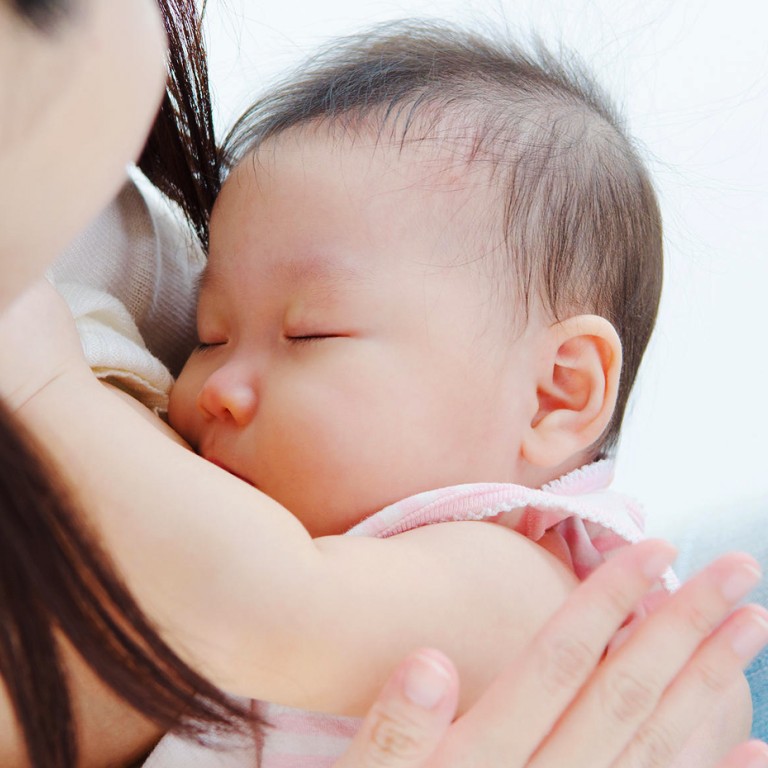
Breastfeeding at an all-time high among Hong Kong's new mums - but lack of support at home and work forces many to stop
Number of new mothers breastfeeding reaches all-time high but lack of support means many find maintaining the practice too challenging
The number of new mothers in Hong Kong who are breastfeeding is at an all-time high, but most don't do it exclusively or sustain the practice due to lack of support in the hospital, workplace or at home, says a new report.
While the rising figure shows increased awareness of the benefits of breastfeeding, a low sustained rate of mothers who give their babies only breast milk for the first six months of life shows that barriers remain.
Paediatrician Dr Patricia Ip Lai-sheung, vice-chairman of the Baby Friendly Hospital Initiative Hong Kong Association, said hospital practices were not always conducive to exclusive breastfeeding - such as separating babies from mothers after delivery and giving formula milk for non-medical reasons.
READ MORE: Hong Kong mothers’ milk contains plenty of nutrients, researchers find, deeming it superior to formula
Stephanie Chan, who gave birth to daughter Lauren at St Paul's Hospital 9-1/2 months ago, said she was given a price list of formulas nurses told her she should feed the baby on. Though her daughter was born at 8pm, she was only allowed to see the baby at 6am the next morning.
"I made it very clear I wanted to breastfeed," Chan says. "I asked the nurses to show me how to latch and was told by one nurse that she was too busy. I resorted to looking up YouTube videos to try to latch Lauren on properly.
"One nurse tried squeezing my breasts for colostrum. I didn't have any until a couple of days later, but she told me some mothers never get milk at all and that perhaps I should give up."
The breastfeeding rate on discharge from hospital has been increasing since 1992, when the Hong Kong Committee for Unicef formed the association and began releasing an annual report to coincide with World Breastfeeding Week, which runs from August 1 to 7.
Its latest report found that while the breastfeeding rate on the day of discharge from maternity units reached a new high of 86.3 per cent in 2014, exclusive breastfeeding rates remained low - 27 per cent in 2014, up from 24.3 per cent in 2013.
"This [second figure] is more important," Ip said. "If you start using formula milk in hospital, the chances of stopping breastfeeding prematurely or altogether are much higher.
"Breast milk secretion is a supply-and-demand issue: the more formula you give, it's a message to the mother's breast that it doesn't need to produce as much. The way the baby sucks from a bottle is different from the breast. Breastfeeding becomes more difficult if the baby is exposed to bottles."
A Department of Health survey of babies born in 2012 also found sustained exclusive breastfeeding rates were low, with 22.1 per cent for a one-month-old baby falling to only 2.3 per cent by the time the baby was six months old - the duration advised by the World Health Organisation.
READ MORE: Breastfeeding is on the rise in Hong Kong - so why do so many mothers still believe formula milk is more nutritious?
Ip points to the lack of support given to mothers after they are discharged from hospital.
"If a mother runs into problems with breastfeeding, does she get expert advice or support?" she said. "There's also the short [statutory] maternity leave [of 10 weeks] - if a mother goes back to work, breastfeeding support from workplace is an issue.
"If a mother runs into breastfeeding difficulties and gets no support, then her concept may be that formula isn't so bad," Ip said. "Sometimes it can be from the people around the mother, such as grandparents or husbands who, out of the goodness of their heart, tell the mother to get some rest [while they feed the baby]. Although breast milk is a form of food, breastfeeding is a lot more than just giving baby nutritious food," Ip added. "It's also about the close contact, bonding, psychological well-being of the mother, and the health of both baby and mother."
Among the other issues Ip highlighted were the acceptance of breastfeeding in public and the promotion through advertisements of breast milk substitutes.

